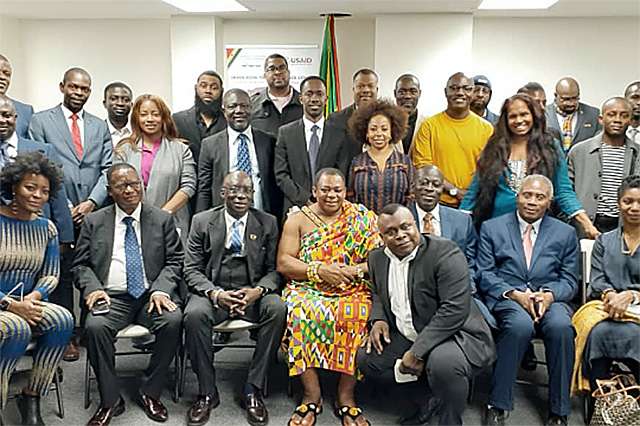Ghanaian companies are setting their sights beyond national borders, with the entire African continent as their target market under the African Continental Free Trade Area (AfCFTA).
Ghana’s proactive approach to leveraging the opportunities presented by AfCFTA has positioned the country as a trailblazer in intra-African trade. Significantly, Ghana has made notable strides into East Africa, with Kenya and Tanzania being among the select seven countries participating in the Guided Trade Initiative (GTI) of the AfCFTA Secretariat.
The GTI offers a strategic platform for Ghanaian businesses to explore and capitalize on the vast opportunities presented by the African market. Under this initiative, Ghanaian companies are empowered to export over 700 AfCFTA-certified products, spanning a diverse range of sectors including cosmetics, processed foods, beverages, coconut oil, shea butter, and garments.
This expansion into East Africa not only signifies Ghana’s commitment to regional trade integration but also highlights the country’s competitive advantage in key sectors. Ghana’s reputation for high-quality products, particularly in areas such as cosmetics and agro-processing, positions it favorably to meet the demand of consumers across the continent.
Moreover, by tapping into the East African market, Ghanaian companies stand to benefit from synergies and cross-border collaborations, fostering innovation, knowledge exchange, and economic growth. Collaborative ventures between Ghanaian and East African businesses have the potential to drive value creation and unlock new opportunities for shared prosperity.
However, while the prospects for Ghanaian companies in East Africa are promising, challenges such as logistics, regulatory compliance, and market penetration remain significant hurdles to overcome. Addressing these challenges will require concerted efforts from governments, businesses, and stakeholders to streamline trade processes, harmonize regulations, and enhance infrastructure connectivity.
Expansion of Ghanaian Companies into East Africa
Nevertheless, the expansion of Ghanaian companies into East Africa under AfCFTA marks a significant milestone in the continent’s journey towards economic integration and prosperity. By harnessing the opportunities presented by regional trade agreements, Ghana is not only strengthening its own economy but also contributing to the advancement of the broader African agenda of unity, cooperation, and shared development.
The GTI Is a pilot implementation phase aimed at ensuring acceleration in the operationalisation of AfCFTA by testing the institutional, legal and trade policy environment for the free trade agreement.
Together with the African Export-Import Bank (Afreximbank), the AfCFTA Secretariat also launched the Pan-African Payment and Settlement System (PAPSS) to simplify and make transactions across the continent easy.
About 88.3 per cent of the Rules of Origin-a strategic framework for determining goods that qualify for preferential tariff treatment originating from the State parties under the AfCFTA- have also been negotiated.
Meanwhile, the Secretariat of the African Continental Free Trade Area (AfCFTA), recognised Ghana as a shining example in the implementation of the continent’s free trade agreement. “We started with seven countries, and I am happy Ghana is taking the lead in this process of implementing the AfCFTA agreement,” said, Mr Didier Bonyeme, Division Head, Rules of Origin, AfCFTA Secretariat.
Ghana is one of the eight countries which have satisfied the requirements to participate in the GTI out of the 29 that have submitted their tariff offers and host to the AfCFTA Secretariat, which has the largest global free trade area by number of member states. Some 14 Ghanaian companies, assisted by the government, have so far, engaged in 40 trades with neighbouring African countries under the under the GTI.
The Guided Trade Initiative is a pilot implementation phase, aimed at ensuring an acceleration in the operationalisation of AfCFTA, by testing the institutional, legal and trade policy environment for the free trade agreement.
READ ALSO: GAWU Projects Food Prices to Remain High Until June 2024





















